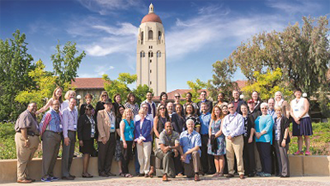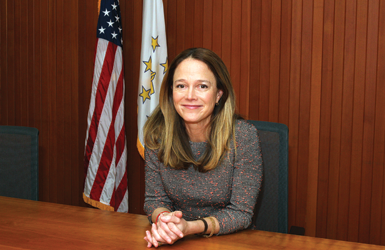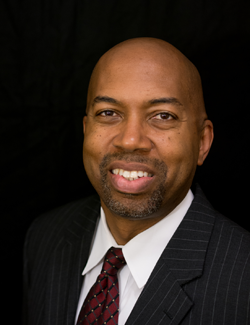MENTORING MATTERS: Experienced Community College Leaders Help Groom Next Generation of Presidents
January 31, 2017

Taking on the new role of president at a community college is no easy feat. It comes with a set of unique challenges that only those who have stepped into the job fully understand.
That's one of the major reasons why the Aspen Institute, in partnership with Stanford University, launched the Aspen Presidential Fellowship for Community College Excellence program last April.
The fellowship connects experienced community college leaders with aspiring, emerging, and new community college presidents. They work together to tackle challenges and issues that fellows might face as leaders at community colleges.
The ten-month fellowship also provides seminars, resources, and tools that cover leadership best practices to increase student success outcomes, especially among low-income, minority, and first-generation college students. As the majority of community college presidents are expected to retire over the next decade, the program developers saw an opportunity to help shape the next generation of leaders "who are leading transformational change within community colleges," says Millicent Bender, the fellowship's curriculum manager.
Dr. Meghan Hughes, Community College of Rhode Island
Dr. Meghan Hughes, who started her role as president at the Community College of Rhode Island in February 2016, is one of the 40 fellows of the program's inaugural class. 
The fellowship requires Hughes and other fellows to develop a unique presidential strategy that aims to transform their community colleges and help them achieve higher levels of student success. She says her mentor, Dr. Robert Templin, Jr., former president of Northern Virginia Community College, has been instrumental in helping her think through her project.
Part of her strategy involves building partnerships with K-12 communities, universities, and the business community. "Bob's understanding of the vital importance of building partnerships has been extremely helpful," she says.
Mentors don't just advise on fellows' strategic plans, they also become trusted professional confidants. Hughes says Templin is a "great listener," who helps her "tackle the steep expectations of being a community college president." These expectations, she says, can be very challenging especially for brand new leaders such as herself.
In addition to mentors, fellows also have the opportunity to network and learn from each other. They attend the program's seminars together, share their experiences, and discuss what they've learned.
"The value and opportunity to learn from an extraordinary group of leaders and presidents," is what Hughes says drew her to the program. "The Aspen program has helped me figure out what's most important for my role, which would have taken me years to do on my own."
Dr. Bill Pink, Grand Rapids Community College
 For fellows aspiring to be leaders at community colleges, mentors provide advice on the presidential job search process. Now preparing to assume his new role as president at Grand Rapids Community College in May, for Dr. Bill Pink, this feature of the program was helpful. Pink says his mentor, Dr. Charlene Nunley, former president of Montgomery College, "from the beginning helped [him] navigate the application process." For Pink, it was especially beneficial that Nunley was also an internal candidate at the time she applied for her presidential position. "She was able to share her perspective on particular issues that an internal candidate faces," he says.
For fellows aspiring to be leaders at community colleges, mentors provide advice on the presidential job search process. Now preparing to assume his new role as president at Grand Rapids Community College in May, for Dr. Bill Pink, this feature of the program was helpful. Pink says his mentor, Dr. Charlene Nunley, former president of Montgomery College, "from the beginning helped [him] navigate the application process." For Pink, it was especially beneficial that Nunley was also an internal candidate at the time she applied for her presidential position. "She was able to share her perspective on particular issues that an internal candidate faces," he says.
Nunley also provides Pink valuable advice, including tips on leadership styles and approaches. For instance, for his presidential strategy project, Pink wants to develop and implement a system that tracks the labor market outcomes of their graduates. His mentor's belief in shared governance has helped shaped his approach. "I believe in a shared model of decision-making because of her advice" he says. "All faculty and all departments will be a part of the conversation. And employers, business leaders, industry leaders, and students, too."
In addition to the value of having a mentor, like Hughes, Pink says he also values the connections he's made with other fellows. "Through Aspen, I have added a network of colleagues who have the same passion that I do," he says. "They will be a part of the rest of my professional career."
The Aspen Institute is a grantee partner of ECMC Foundation. In 2015 and 2016, we made investments that supported the program's recruitment efforts and the development of its curriculum.
Did you enjoy this grantee spotlight? Read more grantee spotlights here.
